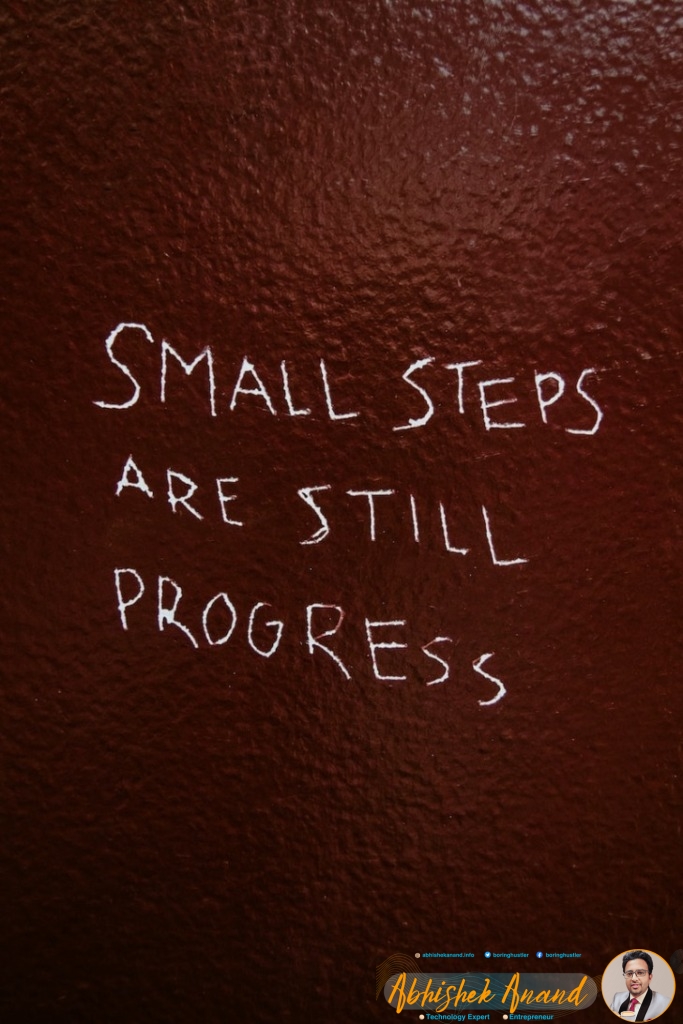In the fast-paced world of startups, time is a precious commodity. As a busy founder, you may often feel that there are simply not enough hours in the day to accomplish everything on your to-do list. Effective time management is essential for maximizing productivity and achieving success in your entrepreneurial endeavors.
To effectively manage your time, it is important to prioritize tasks and set achievable goals. Time blocking and using techniques such as the Pomodoro Technique can help you stay focused and avoid distractions. Delegating tasks and taking advantage of downtime can also free up valuable time for more important priorities. In this article, we will explore various strategies for effective time management that will help busy startup founders maximize their productivity and achieve their goals.

Importance of Prioritization and Goal-Setting
The optimization of productivity for busy startup founders is highly dependent on the utilization of prioritization and goal-setting, which serve as integral components in achieving success within a time-sensitive environment. Prioritization techniques enable entrepreneurs to categorize tasks according to their significance and urgency, allowing them to allocate resources accordingly. By focusing on the most pressing tasks first, founders can ensure that they are always working towards meaningful progress.
Goal setting strategies also play a critical role in effective time management. Entrepreneurs must define clear, specific objectives that align with their long-term vision for their business. This allows them to remain focused and motivated while working towards achieving those goals. Additionally, having measurable milestones along the way provides a sense of accomplishment and motivation to continue pushing forward.
By implementing robust prioritization techniques and effective goal setting strategies, startup founders can streamline their workflow and maximize productivity within limited time frames. However, it is important to note that these strategies alone may not be enough without proper execution plans such as time blocking. The next section will explore how this technique can significantly increase efficiency during work hours without compromising quality or creativity.
Time Blocking
Implementing a structured scheduling technique, such as time blocking, can significantly improve one’s ability to allocate time efficiently and optimize work output. Time blocking involves setting aside specific blocks of time for certain tasks or activities. By doing so, individuals are able to remain focused on the task at hand without getting sidetracked by other distractions.
One of the benefits of time blocking is that it helps individuals prioritize their tasks more effectively. By assigning specific times for each task, individuals are able to identify which tasks are most important and ensure they receive the necessary attention. Additionally, time blocking helps individuals avoid multitasking, which can lead to decreased productivity and increased stress levels.
To effectively implement time blocking, it is important to first identify all necessary tasks and allocate sufficient amounts of time for each one. It is also helpful to establish a routine for when each block will occur in order to maintain consistency and increase accountability. Finally, it is crucial to remain flexible and open to adjusting the schedule as required based on changing priorities or unforeseen circumstances.
Transitioning into the subsequent section about ‘pomodoro technique’, another effective method that complements time-blocking is known as the pomodoro technique. This technique involves breaking down work into 25-minute intervals separated by short breaks in between. By using this approach in conjunction with time-blocking, individuals can further optimize their productivity while minimizing fatigue and burnout.

Pomodoro Technique
Utilizing the pomodoro technique can be likened to taking small, frequent sips of water throughout the day instead of waiting until one is severely dehydrated before chugging a gallon all at once. This time management method involves breaking down work into intervals of 25 minutes, followed by a short break. After four cycles, a longer break is taken. Effective implementation and long-term sustainability require discipline in adhering to the prescribed intervals and breaks. Pomodoro timers are readily available online or as apps for mobile devices.
Personalization according to individual preferences is also crucial for successful implementation of the pomodoro technique. Some people may prefer shorter or longer intervals, while others may need more frequent or longer breaks. Experimentation with different configurations can help one identify what works best for them and their work style. Additionally, identifying distractions that hinder productivity during work periods and eliminating them during pomodoro cycles can enhance effectiveness.
Incorporating the pomodoro technique into daily routines can improve productivity and provide structure to busy startup founders’ schedules. However, it is not a panacea for all productivity problems and cannot replace delegation of tasks when necessary. The next section will discuss strategies for delegating tasks effectively within startup teams without sacrificing quality or efficiency in output.
Delegate Tasks
Delegating tasks is a crucial aspect of team leadership that can enhance the efficiency and quality of output. Effective delegation involves identifying the right person for the job, providing clear instructions, and setting realistic deadlines. It allows startup founders to focus on their core competencies while entrusting other responsibilities to competent individuals.
Managing a team requires effective communication and collaboration. Startup founders need to ensure that their team members are well-informed about their roles and responsibilities. They should also provide regular feedback to help them improve their performance. Outsourcing tasks and hiring freelancers can also be an effective way of delegating work, especially for startups with limited resources.
Outsourcing certain tasks or hiring freelancers can save time and money while ensuring quality results. However, it is important to choose reliable service providers who understand the project requirements and deliverables. Moreover, it is essential to establish clear channels of communication and set expectations upfront. This approach not only helps in efficient delegation but also builds trust between the startup founder and service provider.
Effectively managing a team through delegation brings benefits such as increased productivity, better work-life balance for busy startup founders while building strong relationships with employees/service providers alike.. In order to further maximize productivity as a leader in your start-up company we will now delve into discussing how you can avoid distractions during your working hours.
Avoid Distractions
To maintain focus and optimize work output, limiting distractions is a key aspect of successful team leadership, with research showing that the average employee spends 2.5 hours per day on non-work-related tasks. As a busy startup founder, it is essential to minimize interruptions to ensure productivity while working. Here are three ways to minimize distractions while working:
- Set boundaries: Establishing clear boundaries can help you avoid unwanted interruptions during your workday. This could mean setting specific office hours or communicating your availability to colleagues and clients.
- Create a distraction-free environment: Minimize noise and visual distractions by finding a quiet workspace or using noise-cancelling headphones. Turn off notifications on your phone and computer, especially social media alerts which can be particularly distracting.
- Take breaks: While this may seem counterintuitive, taking regular breaks can improve focus and concentration in the long run. Taking short walks or stretching exercises can help alleviate stress and promote mental clarity.
By implementing these strategies for improving focus and concentration, startup founders can maximize their productivity despite numerous potential distractions in the workplace. In addition to these tactics, there are also various productivity tools available designed specifically for time management and reducing interruptions while working efficiently on essential tasks.
Use Productivity Tools
Productivity tools have become increasingly popular among professionals looking to streamline their work processes and improve efficiency. With the rise of remote work, collaboration tools like Slack and Asana have become essential for startup founders to communicate with their teams in real-time. These platforms allow for seamless communication across different time zones and enable team members to track project progress and assign tasks efficiently.
Time tracking tools are also useful for busy startup founders who want to keep track of how much time they spend on various tasks throughout the day. Tools like Toggl and RescueTime provide detailed reports on where time is being spent, allowing individuals to identify areas they need to improve in terms of productivity. Tracking software can also help entrepreneurs prioritize tasks based on importance and urgency, ensuring that they are using their time effectively.
While productivity tools can be incredibly helpful in maximizing efficiency, it’s important for busy startup founders to remember the importance of taking breaks throughout the day. This could mean stepping away from a computer screen for a few minutes every hour or going for a walk during lunchtime. By incorporating regular breaks into their workday, entrepreneurs can maintain focus and prevent burnout, ultimately leading to increased productivity in the long run.
Take Breaks
Incorporating regular breaks into the workday can improve focus and prevent burnout, ultimately leading to increased efficiency in the long run. Taking a break from work allows your mind and body to recharge, resulting in a boost of energy and creativity upon returning to tasks. Additionally, taking breaks can help reduce stress levels by providing an opportunity for relaxation and mental clarity.
To maximize the benefits of breaks, it is important to implement effective strategies for taking them during work hours. One strategy is the Pomodoro Technique, which involves working on tasks for 25 minutes followed by a five-minute break. After four Pomodoro’s, take a longer break of 15-30 minutes. Another strategy is to get up and move around during breaks by stretching or taking a quick walk outside. Avoid checking emails or social media during breaks as this can lead to distractions that hinder productivity.
Learning how to effectively take breaks is just one aspect of managing time as a busy startup founder. In order to maintain focus on high-priority tasks, it is also important to learn how to say no when necessary and prioritize responsibilities accordingly. By learning these skills, startup founders can increase productivity while still maintaining overall well-being and avoiding burnout in their professional lives.

Learn to Say No
Learning to decline requests and prioritize tasks is a crucial skill for individuals seeking to maintain a healthy balance between work and personal life. Saying no gracefully can be challenging, particularly for startup founders who are eager to please clients or investors. However, setting boundaries is essential to prevent burnout, reduce stress levels, and ensure that the most important tasks receive adequate attention.
Here are three reasons why learning to say no is critical:
- Saying yes too often can lead to overcommitment, which increases stress levels and reduces productivity.
- Prioritizing your workload means you can focus on the most important tasks without being distracted by less urgent requests.
- Setting boundaries demonstrates that you value your time and enables others to respect it as well.
To say no gracefully, start by acknowledging the requestor’s needs or concerns. Then explain why you cannot fulfill their request at this time while expressing gratitude for their interest or support. It may take practice, but saying no assertively without feeling guilty will help you avoid taking on too much work.
To stay organized in your daily routine requires planning ahead of time. For example, creating a schedule with specific times dedicated only to certain tasks can increase efficiency by minimizing distractions throughout the day. Additionally, organizing your workspace allows for better concentration on individual assignments rather than searching through piles of cluttered papers or emails.

Stay Organized
Staying organized is an essential habit for startup founders to maintain productivity. There are three key points that can help in achieving this goal: keeping the workspace tidy, using folders and labels, and keeping track of deadlines. By following these practices, founders can avoid clutter and disorder, find information quickly, and accomplish tasks on time.
Keep Your Workspace Tidy
Maintaining a clean and organized workspace can contribute significantly to improving efficiency, as the adage goes, ‘A cluttered desk is a sign of a cluttered mind.’ Adopting a minimalist approach to organizing your workspace can have tangible benefits. By eliminating unnecessary items from your work area, you reduce distractions and create more space for essential tools and materials. This decluttering process also gives you the opportunity to reorganize your workspace according to the principles of Feng Shui. By placing objects in specific areas based on their function or element, you can create an environment that promotes productivity and creativity.
In addition to adopting minimalism and Feng Shui practices, keeping your workspace tidy requires consistent effort. Make it a habit to put everything back in its place at the end of each workday or task. Use storage solutions such as drawers, cabinets, or shelves to keep items off your desk when not in use. Label storage containers and folders so that everything has an assigned place and is easy to find when needed. By maintaining an organized workspace, you will be able to focus on tasks more efficiently without being distracted by clutter or wasting time searching for misplaced items.
Use Folders and Labels
Utilizing folders and labels can assist in keeping your workspace organized and easily accessible for necessary documents or materials. Folder organization ensures that all relevant materials are in one place, making it easier to find what you need without having to sift through piles of paperwork. Moreover, with the use of labels, it becomes easier to identify specific items within a particular folder, making it more efficient when searching for something.
Labeling efficiency is also critical in managing time effectively. By labeling documents according to their relevance or importance, startup founders can quickly prioritize which tasks need immediate attention. Additionally, by allocating different colors for different categories or types of documents, such as financial reports or marketing plans, entrepreneurs can quickly categorize them accordingly. This makes it much easier to differentiate between important and non-essential tasks while ensuring that deadlines are met promptly.
Organizing your workspace by utilizing folders and labels helps you stay productive while minimizing stress levels caused by cluttered workspaces. Labeling not only allows you to locate essential items faster but also aids in prioritizing tasks efficiently. In the next section about ‘keep track of deadlines,’ we will discuss how incorporating tools such as calendars or scheduling software into your workflow can help manage time effectively.
Keep Track of Deadlines
To ensure timely completion of tasks, it is crucial for entrepreneurs to keep an eye on impending deadlines like a hawk spotting its prey. Tracking progress and setting reminders can help busy startup founders stay on top of their schedules and prevent missed deadlines. One effective way to keep track of deadlines is by creating a calendar with the due dates for all pending projects. This allows entrepreneurs to visualize their workload and prioritize accordingly. Additionally, setting up reminders through email or notification systems can provide an extra layer of accountability.
It is important for entrepreneurs not only to set deadlines but also to create actionable plans that allow them to meet those deadlines efficiently. Automated task management tools can be beneficial in this regard by reducing time spent on repetitive tasks such as data entry or scheduling meetings. By automating certain aspects of their workflow, startup founders can free up more time for high-priority activities such as product development or client acquisition.
Automate Tasks
Automating tasks can be a game-changer for busy startup founders who want to increase productivity and focus on more strategic responsibilities. Streamlining processes and reducing workload through automation can free up valuable time that can be used to tackle higher-level tasks. For instance, repetitive administrative tasks such as data entry, email management, social media posting, and scheduling appointments can be automated using various tools available online.
One of the benefits of task automation is that it reduces the likelihood of errors caused by human mistakes or oversight. With automation, routine tasks are completed consistently and accurately without requiring manual input from the founder. As a result, there is less need for rework or correction, which ultimately saves time in the long run. Additionally, automating certain aspects of an operation ensures that employees have access to timely information when they need it most.
Automating tasks is an essential part of effective time management for startup founders looking to maximize productivity. By streamlining processes and reducing workload through automation tools, entrepreneurs can free up their schedules while ensuring consistency and accuracy in their operations. The next step towards optimal productivity involves taking advantage of downtime opportunities.
Take Advantage of Downtime
Maximizing productivity requires utilizing every available opportunity for personal and professional growth. One effective way to achieve this is by taking advantage of downtime, which can be used to develop new skills, gain knowledge, or plan ahead. Commute time can be wisely used by listening to podcasts or audiobooks related to one’s industry or interests, while planning the day ahead helps prioritize tasks and avoids wasting valuable time.
Use Commute Time Wisely
Efficient use of commute time can significantly increase the productivity of startup founders. While some may argue that it is difficult to focus amidst the noise and chaos of public transportation, with noise-cancelling headphones and a focused mindset, this time can be utilized for productive reading or responding to emails. Productive reading refers to reading industry articles or books related to one’s business that would provide valuable insights and ideas. This could also include mindful meditation, which can help reduce stress levels and improve focus.
Listening to podcasts or audiobooks is another effective way for busy startup founders to make use of their commute time wisely. Podcasts and audiobooks offer an opportunity to learn new things while doing something else like driving or taking public transport. They also keep the mind engaged during downtime, making it easier for individuals to stay up-to-date with industry trends. By utilizing this time effectively, busy startup founders can not only maximize their productivity but also reduce stress levels by having more free time throughout the day.
Listen to Podcasts or Audiobooks
Listening to informative podcasts or audiobooks can provide valuable insights and keep individuals up-to-date with industry trends. This is especially beneficial for busy startup founders who may not have the time to read books or attend conferences. Incorporating this method of multitasking can allow them to stay informed while also completing other tasks, such as commuting or exercising. Additionally, by listening to podcasts or audiobooks that cover a variety of topics, startup founders can expand their knowledge base beyond their specific field and gain new perspectives.
Incorporating mindfulness into podcast and audiobook listening can further enhance its benefits. By focusing on the present moment and being fully attentive to the content being presented, individuals can improve their ability to retain information and apply it to their work. Additionally, mindfulness has been shown to reduce stress levels and increase overall well-being, which can benefit busy startup founders who often face high levels of pressure and stress. Overall, incorporating podcasts or audiobooks into daily routines with a mindful approach can be a highly effective way for startup founders to maximize productivity while also expanding their knowledge base.
Transitioning into the subsequent section about planning ahead: In addition to utilizing commute time wisely through podcast or audiobook listening, there are other strategies that busy startup founders can implement in order to effectively manage their time.
Plan Your Day Ahead
One helpful approach for individuals to better organize their daily schedules and improve their overall performance is to plan ahead. This involves setting aside time at the end of each day or first thing in the morning to review tasks, prioritize them, and allocate specific times for completion. Time blocking is a popular technique that can be used to schedule activities and increase productivity. It involves dividing the day into specific time slots and assigning tasks or appointments to each block. However, some people may find this too rigid and prefer more flexible scheduling alternatives.
Benefits of flexible schedules include the ability to adapt to unexpected events or changing priorities without feeling overwhelmed. For instance, leaving gaps between scheduled activities can provide buffer times for unforeseen circumstances or allow for impromptu meetings with colleagues or clients. Additionally, it enables individuals to take advantage of their peak energy levels during specific times of the day when they feel most productive. Ultimately, planning ahead helps startup founders stay focused on their goals by providing structure and direction in achieving them.
Transitioning into the subsequent section about ‘stay motivated’, startup founders must acknowledge that staying motivated can sometimes be challenging even with effective time management strategies in place.
Stay Motivated
Maintaining motivation can be a challenging aspect for busy startup founders, especially when faced with numerous responsibilities and tasks to accomplish each day. Overcoming burnout and staying motivated requires discipline and a strong mindset. Using vivid imagery, such as comparing motivation to a muscle that needs regular exercise, can help make this concept more relatable and engaging for readers.
To stay motivated, it is important to set achievable goals and celebrate progress along the way. This approach helps in breaking down bigger tasks into smaller ones which are easier to manage. It’s also essential to find inspiration from others’ success stories or motivational quotes that resonate with you.
Another effective way of maintaining motivation is by taking breaks regularly to avoid becoming overwhelmed or burned out. Incorporating physical activity during these breaks has been shown to increase productivity and reduce stress levels significantly. Additionally, practicing mindfulness through meditation or deep breathing exercises can provide clarity of mind while helping one remain focused on the task at hand.
The challenge of staying motivated as a startup founder is real but it’s not insurmountable. By setting achievable goals, finding inspiration from others’ success stories or motivational quotes that resonate with you, taking regular breaks combined with physical activity and mindfulness practices; you can successfully overcome burnout while keeping yourself motivated towards achieving your business objectives. In the next section, we will discuss how learning to manage stress plays an integral role in effective time management for busy startup founders.
Learn to Manage Stress
Learning effective stress management techniques is crucial for achieving optimal performance and avoiding burnout in the entrepreneurial world. High levels of stress can lead to physical and mental exhaustion, making it difficult for founders to focus on their work. Therefore, reducing stress should be a priority for startup founders who want to maximize productivity and stay motivated.
One way to reduce stress is by practicing mindfulness techniques such as meditation, deep breathing exercises, and visualization. These techniques can help entrepreneurs relax their minds, improve their focus, and increase their resilience to stress. Research has shown that regular practice of mindfulness can lower cortisol levels (the hormone associated with stress), improve sleep quality, boost immune system function, and enhance overall well-being.
In addition to mindfulness techniques, startup founders can also manage stress by adopting healthy lifestyle habits such as regular exercise, healthy eating habits, adequate sleep patterns and social support systems. By prioritizing self-care practices in their daily routines , entrepreneurs can create a more balanced lifestyle that enables them to manage stressful situations effectively without compromising their health or productivity levels. With these techniques in place , founders will be better equipped to handle the challenges they face while building successful startups .
By learning how to manage your stress levels effectively through mindfulness techniques and other healthy lifestyle choices , you will be able to evaluate your progress objectively without being overwhelmed by negative emotions or feelings of burnout . In the next section about ‘evaluate your progress’, we will explore strategies that enable you as an entrepreneur stay accountable towards your goals while maintaining a positive mindset towards growth .

Evaluate Your Progress
The evaluation of progress is an essential component in the effective management of time for busy startup founders. Monitoring time management strategies is crucial to identify areas for improvement as well as to determine whether goals are being met. Adjusting one’s approach when necessary allows individuals to optimize their productivity and achieve their desired outcomes more efficiently. By adopting a systematic and objective approach, entrepreneurs can evaluate their progress and develop strategies that help them stay on track towards achieving success in their startups.
Monitor Your Time Management Strategies
By keeping a watchful eye on your time management strategies, you can ensure that your schedule is like a well-oiled machine, running smoothly and efficiently. One effective way to monitor your time management strategies is by tracking productivity. This involves regularly reviewing your progress and comparing it to the goals you have set for yourself. By doing this, you can identify any areas where you may be falling short or overcommitting yourself.
Monitoring your time management strategies allows you to make necessary adjustments and improvements to optimize efficiency. For instance, if you notice that one particular task consistently takes longer than expected, it may be worthwhile to re-evaluate how you approach that task or delegate it to someone else who is better suited for the job. By continually monitoring and evaluating your time management techniques, you can identify areas for improvement without compromising productivity or sacrificing valuable resources.
Identify Areas for Improvement
In order to effectively monitor your time management strategies, you must first identify areas for improvement. This means taking a critical look at how you currently spend your time and evaluating which tasks are essential to achieving your goals and which ones can be delegated or eliminated altogether. By identifying inefficiencies in your workflow, you can begin to improve efficiency and optimize the way you work.
One area where many startup founders struggle is prioritizing tasks. It’s easy to get bogged down in minor details or spend too much time on non-essential activities. By identifying these areas for improvement, you can create a more streamlined approach to task management that focuses on high-priority items first. Additionally, it’s important to evaluate the tools and technology you use to manage your time. Are there more efficient options available that could help streamline your workflow? Taking the time to assess these areas for improvement can have a significant impact on overall productivity and success as a startup founder.
With an understanding of how to monitor existing strategies and identify areas for improvement, it’s important to adjust your approach as needed. This means being open-minded about trying new methods of time management and being willing to pivot if something isn’t working effectively. By continually evaluating and fine-tuning your approach, you can ensure that you’re making the most of every hour in each day – ultimately leading towards greater success as an entrepreneur.
Adjust Your Approach as Needed
Adapting to changing circumstances is crucial for optimizing one’s time management strategies as an entrepreneur. It requires a mindset that is open to adjustments and flexible in planning. While having a solid plan in place can be helpful, it’s important for startup founders to recognize that unforeseen events and distractions can occur at any given moment, which can throw off their schedule.
To adjust their approach accordingly, entrepreneurs must learn how to prioritize tasks based on urgency and importance. They should also be willing to delegate responsibilities when necessary and avoid getting bogged down by minor details. Additionally, they should constantly evaluate their current strategies and make changes as needed. By embracing flexibility in planning and adjusting their mindset accordingly, busy startup founders can maximize productivity while maintaining a healthy work-life balance.
Conclusion
Effective time management is crucial for busy startup founders who want to maximize their productivity. Prioritization and goal-setting are essential first steps in managing one’s time effectively. Time blocking and the Pomodoro technique are both effective strategies for breaking down tasks into manageable chunks, while delegating tasks can free up more time for important responsibilities.
Avoiding distractions and taking advantage of downtime are also key components of effective time management. Staying motivated is critical when dealing with the often-overwhelming demands of starting a new business, as is learning how to manage stress. Finally, regularly evaluating progress can help ensure that time is being used efficiently.
In conclusion, successful startup founders must learn to manage their time effectively if they hope to achieve their goals. By prioritizing responsibilities, using proven techniques like time blocking and delegation, avoiding distractions, and staying motivated, entrepreneurs can make the most of their limited hours each day. As they strive towards success, it is important for startup founders to ask themselves: “Am I making the most of my time?” With these strategies in hand, the answer will undoubtedly be a resounding “yes.” …and the potential for achieving their goals and building a successful business will be within reach.

